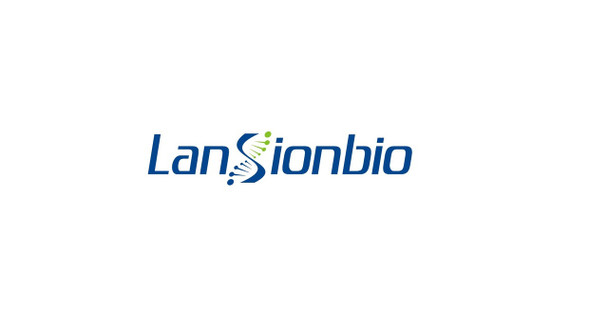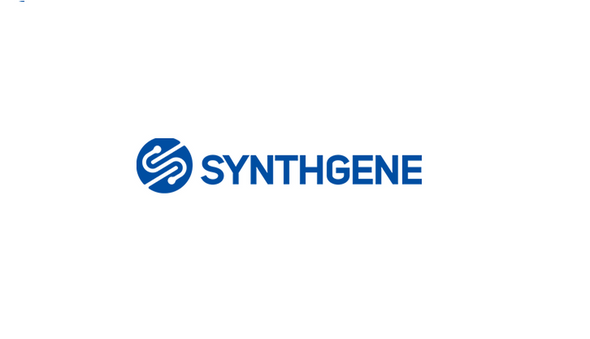Monkeypox Virus Antibody Test Kit (Dry Fluorescence Immunoassay)
- SKU:
- LANS-MNK-AB-22
- Availability:
- Usually Shipped in 5 Working Days
Description
Monkeypox Virus Antibody Test Kit (Dry Fluorescence Immunoassay) | LANS-MNK-AB-22 | Lansion Biotechnology
INTENDED USE
The Monkeypox Virus Antibody Test is used to detect monkeypox virus antibodies in blood samples from patients suspected of having monkeypox virus after the onset of symptoms and can be used as a clinical aid in the diagnosis of monkeypox virus infection. Positive and negative results insuspected persons should be subjected to further nucleic acid testing.
TEST PRINCIPLE
During the test, a specimen is dropped into the hole, and then the specimen is superimposed under the capillary effect. If the specimen contains monkeypox virus antibody, A color band appears in the test area (T) indicate a positive result for monkeypox virus antibody. If the specimen does not contain the corresponding substance to be tested, there will be no color bands in the test area (T), and the result will be negative. A color band appears in the quality control area (C) regardless of whether the corresponding substance to be tested is present in the specimen. The color band in the quality control area (C) is the standard to determine whether there are enough specimens and whether the chromatographic process is normal, and also serves as the internal control standard of the test.
MAIN COMPONENTS
1. Monkeypox Virus Antibody test strip in a sealed pouch with
desiccant………………………………….............................…25 pieces
2. Sample diluent………………………………………………………..1 bottle
3. QR code card for calibration……………………………………1 piece
4. User Manual……………………………………………………………1 piece
Note: Do not mix or interchange different batches of kit.
STORAGE AND VALIDITY
Store the test kit at 4°C-30°C, with a valid period of 18 months. Test strip is individually packaged. Test strip should be used within 1 hour once the foil pouch is opened.
APPLICABLE DEVICES
1. LS-1000 Dry Fluorescence ImmunoassayAnalyzer
2. LS-2000 Dry Fluorescence ImmunoassayAnalyzer
3. LS-1100 Dry Fluorescence ImmunoassayAnalyzer
4. LS-2100 Dry Fluorescence ImmunoassayAnalyzer
5. LS-4000 Dry Fluorescence Immunoassay Analyzer (Handheld)
6. LS-7000 Fluorescence Immunoassay Analyzer
SAMPLE REQUIREMENTS
1. Used for human serum, plasma,whole blood, Fingertip blood. Other bodily fluids and samples may not get the accurate result.
2. Serum can be vascularized in a vacuum without anticoagulant.
3. Pasma can be anticoagulant with EDTA、Heparin and sodium citrate.
4. The sample should be tested immediately after being collected. The sample to be measured can be stored at 2°C-8°C for 3 days if they cannot be tested immediately. For long-term storage, it should be placed at -20°C. Samples should avoid repeated freezing-thawing.
5. In order to ensure the accuracy of the result, the sample with large amount of lipid, hemolysis or turbidity should not be used. The sample with microbial contamination should be avoided.
6. The frozen samples should be completely melted and mixed evenly before use. Repeated freezing-thawing should be avoided. It is recommended that the freezing-thawing of the sample should not be more than one time. If there is sediment in the thawed sample, the sample should be centrifuged before testing.
TEST PROCEDURE
1. Preparation: The test strip, sample and sample diluent should be recovered to room temperature (15°C-30°C) before testing.
2. Calibration: Turn on the device and insert the calibration curve by scanning the QR code of the test kit to complete the calibration.
3. Add the sample:Deliver 5μL of sample into the sample port of the test strip and add four drops of sample diluent (100μL-140μL) to the sample port immediately, then start timing. It should be ensured that no bubbles are generated during the operation.
4. After 15 minutes, insert the test strip with sample mixture into the device for testing (for details, see the device operating instructions).
5. The device performs analytical testing and displays the results.
6. Remove the used test strip.
7. Quality control: the test kit doesn’t include controls.
INTERPRETATION OF RESULT
1. Monkeypox virus antibodies<1.00, it indicates that the antibody test is negative. Monkeypox virus antibodies≥1.00, it indicates that the antibody test is positive. If the test is positive, other tests will be recommended to confirm diagnosis.
2. The test kit can’t exclude the possibility of false positive completely due to the specificity of the antigen and antibody in the sample and the differences in the complex structure of biologically active substances. The result of the test should be evaluated in the context of all the clinical and laboratory data available. In those instances where the laboratory results do not agree with the clinical evaluation, additional tests should be performed accordingly.
LIMITATION
1)The positive results of Monkeypox Virus Ab Test cannot exclude the infection of other pathogens other than Monkeypox Virus.
2) Monkeypox Virus Ab Test can only qualitatively detect monkeypox virus antibody in the specimen, and cannot indicate the content of the antibody in the specimen.
3) Monkeypox Virus Ab Test is only used for preliminary screening. If it is necessary to confirm the diagnosis, clinical symptoms or further laboratory tests should be performed
PRODUCT PERFORMANCE
1. Negative reference rate: the company's negative reference rate should be 10/10.
2. Positive reference rate: The corporate positive reference rate should be 5/5.
3. LoD:When tested with the corporate detection limit reference, SL1 and SL2 monkeypox virus antigens are detected as positive and SL3 monkeypox virus antigens are detected as negative.
4. Reproducibility: The two monkeypox virus antigens corporate precision reference products (SR1 and SR2) are tested and each is repeated 10 times and the results are positive.
5. Between-batch precision:Three batches of kits were taken, and two Monkeypox virus antigen corporate precision reference products (SR1 and SR2) were tested, and each was repeated 10 times with a CV less than 20%.
PRECAUTIONS
1. : In vitro diagnostic medical device.
2. After the test strip is removed from the sealed pouch, it should be tested as soon as possible to avoid excessive time in the air, resulting in dampness.
3. The damaged test strip or package cannot be used.
4. Do not mix the components of different kits.
5. All samples from patients should be treated as potential sources of infection.
6. Used strips should be properly disposed according to local regulations to avoid contamination.







